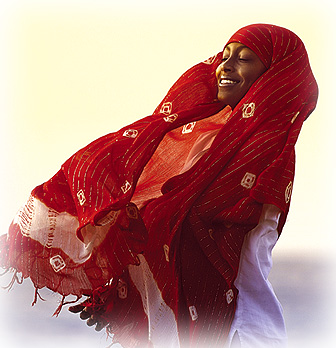Unless you live on some other planet, you are sure to have heard the lament, if not an outright accusation, especially after every terror act (sadly there are far too many) in which Muslims are, or are alleged to be, involved: “Where are the ‘Moderate’ Muslim voices? Why do they not speak out, condemn such heinous crimes in the name of Islam?”
On their part, Muslims assert that the very word ‘Islam’ means ‘peace’. They point to the frequent and numerous fatwas and statements of muftis and molvis condemning all acts of terror as “un-Islamic”. They refer to verse 5.32 in the Quran: “Whoever kills a person [unjustly]…it is as though he has killed all mankind. And whoever saves a life, it is as though he had saved all mankind.”
Islamophobes, however, insist that Islam as the extremists and the terrorists interpret it is the “real Islam”, all else is false posturing, apologia at best.
Some Muslims claim they are sick and tired of having to bear the burden of “collective guilt”; of being held accountable for the crimes, however heinous, committed by a miniscule proportion from a community numbering over 1.6 billion; of being expected to hit the streets, issue condemnatory statements after every an act of terror by their co-religionists. Here are some counter-questions: Are all Christians, Hindus, Buddhists or whoever held responsible for the misdeeds and crimes of some who profess the same faith? Why then does the world make a different demand from Muslims?
How many of us recall Indian newspaper headlines and TV panel discussions on ‘saffron terror’ through the latter part of 2008 and since? Or the Time magazine’s cover story in July 2013 on ‘The face of Buddhist Terror’ and newspaper headlines across the Western world on the ‘Buddhist bin Laden’ of Myanmar? Is the Nobel Peace Prize winner, Aung San Suu Kyi, who refuses to open her mouth on the plight of Rohingya Muslims, a ‘moderate Buddhist’?
But the search for the ‘moderate Muslim’ goes beyond the issue of terrorism, pops up in other contexts too. What do Muslims believe in: Secular democracy or a theocratic state and shariah laws? Religious freedom or death for apostates? Freedom of expression or the blasphemer’s head? Celebration of diversity and pluralism or a supremacist Islam? Gender justice or male supremacy? What about sexual rights of LGBTs? At times such questions are summed up in an over-arching poser: Is Islam compatible, are Muslims at home, with modernity?
Back to the beginning: Who are ‘moderate Muslims’? Some Muslims question the very assumptions, the prejudice underpinning such a question. Others, Muslims and non-Muslims, mean different things when they talk of moderate Muslims. Sabrang India does not propose to add to the ambiguity. Instead, we introduce our readers to a range of Muslim organisations which have emerged in recent years across the world. Do they qualify to be counted among what is meant by ‘moderate Muslims’, ‘progressive Muslims’? You judge for yourself.
‘Where the moderate Muslims are’ is a work in progress. Visit again to get to know of other Muslim groups and organisations.
Theme image:

Themes Category:
Strapline:
We introduce you to some organisations and groups who may fit your definition of ‘moderate Muslims’
Themes Home page Image:




